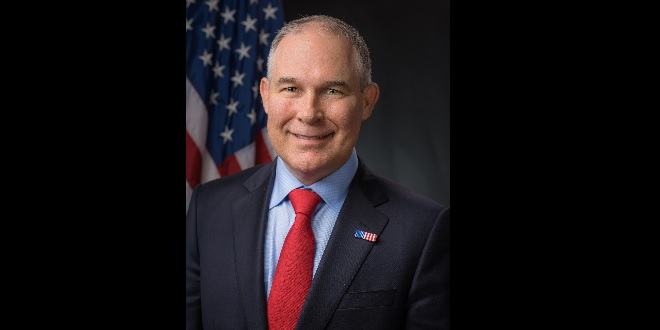Podcast: Play in new window | Download (Duration: 3:28 — 3.7MB)
Former Environmental Protection Agency Administrator Scott Pruitt has been hired as an energy lobbyist, in Indiana.
Pruitt resigned from the EPA in July, 2018, amid reported ethical violations and mismanagement of funds. Pruitt registered last week as a lobbyist, in Indiana. He was hired by Denver-based Hallador Energy Company which maintains substantial coal mining interests throughout Indiana. Hallador owns Sunrise Coal, the second largest coal mining company in the state.
In a press release on Saturday, Hallador said Pruitt was hired to, “protect the ratepayers of Indiana from Vectren and NIPSCO rate increases.” Vectren and NIPSCO, two Indiana-based utility companies, have petitioned the Indiana Utility Regulatory Commission, to close down many of their coal-powered energy plants. Hallador says coal plant closures would increase Indiana utility customers electricity bills. While Vectren and NIPSCO said customers will face initial rate increases, their plans to cut down on coal power and shift toward renewable energy would allegedly save customers money in the long term.
Indiana is one of the top ten coal producers in the nation, with about 75 percent of coal mined in Indiana used in-state. Indiana is the third highest coal consuming state, after Texas and Illinois, and it ranks second in coal consumption for electricity production, after Texas. Additionally, the state’s steel manufacturing and automotive sectors also contribute to coal consumption. Indiana ranks third in the nation when it comes to industrial coal consumption, and ten percent of the coal mined in the state goes to work in steel mills as industrial coke.
According to the U.S. Energy Information Administration, coal-fired electricity generation is on the decline, in Indiana. In 2017, 70 percent of the state’s megawatt hours were produced via coal.
The cheapened production of natural gas, via oil shale and fracking, has largely contributed to the decreasing use of coal as an energy resource. Renewable energy is also eating away at coals’ market share. Over half of the 200 megawatts brought online in 2017 were from renewable energy sources. Wind produced just 5 percent of the state’s power, in 2017.
 WFHB Bloomington Community Radio
WFHB Bloomington Community Radio


